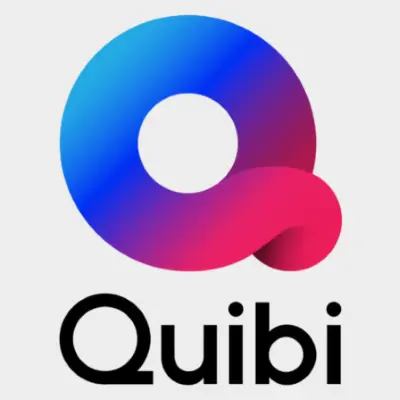Quibi is YouTube for people who hate YouTube
-

"I surprisingly like the platform’s truncated, tiny-screen reframing of big TV," says Lorraine Ali, in a Quibi conversation with fellow Los Angeles Times TV critic Robert Lloyd. "Its curated collection of original shows is a welcome alternative to the short-form viewing experience I’ve grown accustomed to bemoaning. YouTube is like rummaging through the final sale bin of a deep discount store. There’s a lot of clutter, it’s a lot of work, and there are not enough redeeming finds among all the amateur skit comedy my teenager hate-watches to justify the time spent. Quibi’s a better option for impatient viewers like myself, who want to avoid endless wormholes but value series TV that clocks in under 10 minutes per episode." But Lloyd counters that YouTube, and other web-based platforms, "with their open doors and low bars (you do not need to take a meeting with Jeffrey Katzenberg, or anybody, to get your show onto YouTube), is that what it has to offer is unpredictable, personal, oddly shaped." Ali responds: "I agree that the democratic nature of YouTube and the like is a good thing. But it’s overwhelming and I’ve found in the current political climate of misinformation and polarizing rants, I need corporate alternatives to the corporate alternative. I’m sure that will change when the pendulum swings back toward total studio control, and Quibi has devoured us all."
ALSO:
- Why are Quibi's scripted shows so mediocre?: "Were they poor choices to begin with, or is Quibi’s 'movies in chapters,' as it calls the format, sabotaging them?" says Mike Hale, who adds: "All of the shows scan quickly — you catch on to who’s important and what they’re like within an episode or two. That doesn’t mean they move quickly, though. Situations and stories are two different things, and the staccato rhythm of the short episodes appears to get in the way of moving the stories forward. In each of the shows, the main plot seems to be just getting underway, or about to get underway, after close to 40 minutes. The reason for that, it seems fair to say, is less a failure of execution than a failure of imagination at the beginning of the process. Rather than explore new storytelling forms suited to the cellphone — the way Snapchat and the users of TikTok do — Quibi, on the evidence of these early shows, is taking conventional dramatic formulas and simply rendering them into bite-size videos. That may be exactly the business plan, but as an artistic strategy it’s headed nowhere."
- While one data analytics firm said 300,000 users downloaded Quibi on the first day, another firm estimated that 700,000 users actually signed up: "The sharply varying numbers make it difficult to determine how much traction Quibi gained on its launch day and exemplifies the difficulty of determining how successful streaming services are," says Tyler Hersko. "While Nielsen’s ratings have long been the voice of authority for television viewership, there is no standard of measurement for the industry’s numerous streaming services."
- Quibi has a lot of work to do after a disappointing launch: "Here’s the thing about Quibi: Its content skews young and it feels like an app made primarily for a demographic who don’t mind streaming on their phones. (I’m talking, of course, about the teens.)," says Catie Keck. "Because the service launched with some 50 shows, it probably does have something for everyone, but it’s unlikely on-the-fence viewers will be able to easily find what they’re looking for given the app’s oddly organized interface these. And even if they do, again, there’s the whole tiny screen limitation. It’s quite possible Quibi will see a ton more use when people start leaving their homes again and have more of a reason to be watching on mobile in their everyday life."
- Quibi's main competition, YouTube, already offers free go-to service for bored people desiring quick-hit distractions
- Tituss Burgess can't believe Dishmantled is a real show, either: “My agent called and said, ‘What if there was a show where you got to blow up food on people?’ and I literally started laughing,” says Burgess. “I was like, ‘Oh, that’ll be the day. But sign me up when it happens.’”
- Dishmantled isn't even pretending to be about food
- Nikki Fre$h is rooted in a hashtag Nicole Richie started using to accompany posts about her edible garden: “I fell in love with it, and started hashtagging all my harvests because that’s what Oprah does so I was like, I have to also," says Richie.
- Ranking Quibi's 24 launch day shows: Nikki Fre$h is No. 24
TOPICS: Quibi, YouTube, Dishmantled, Nikki Fre$h, Nicole Richie, Tituss Burgess, Reality TV
